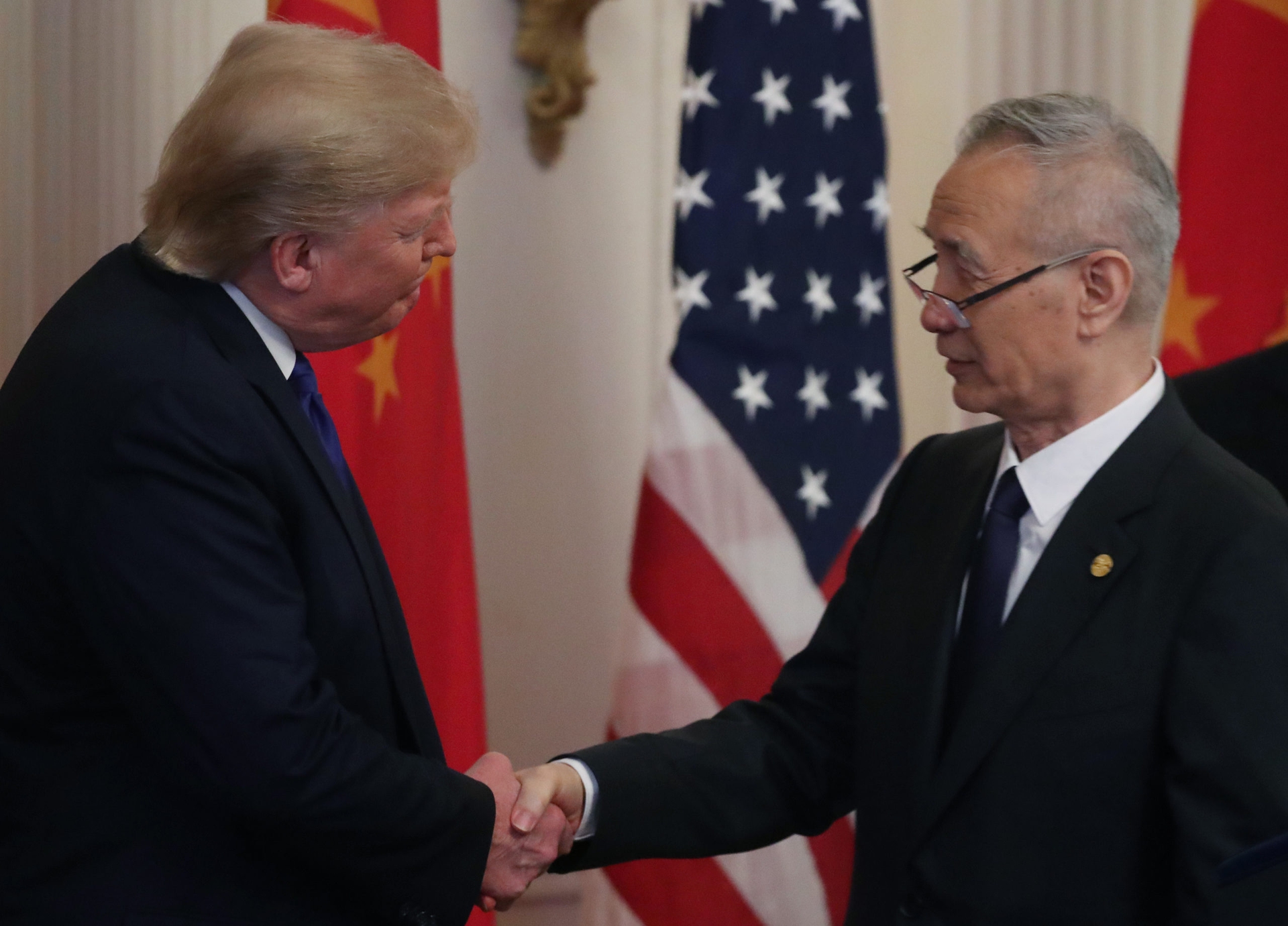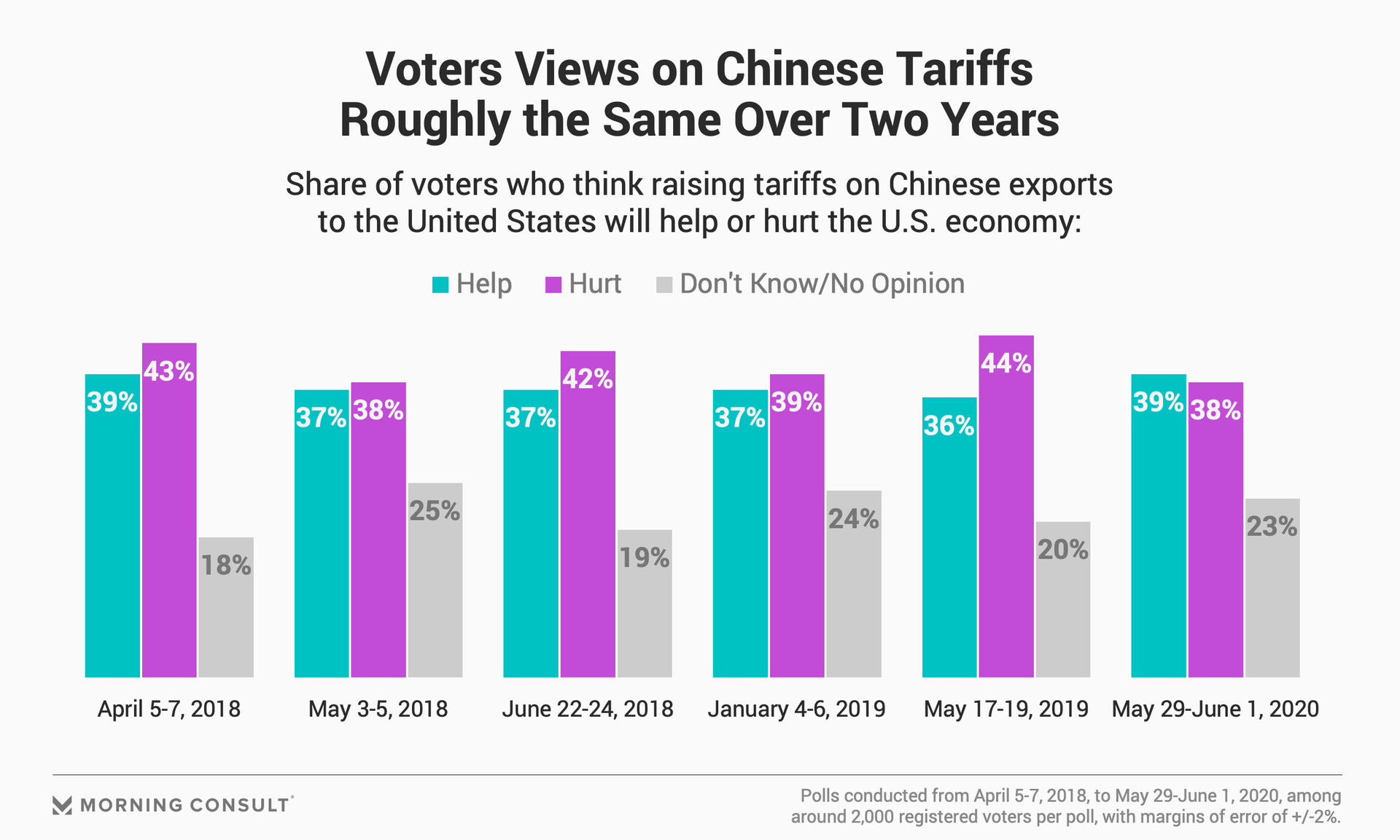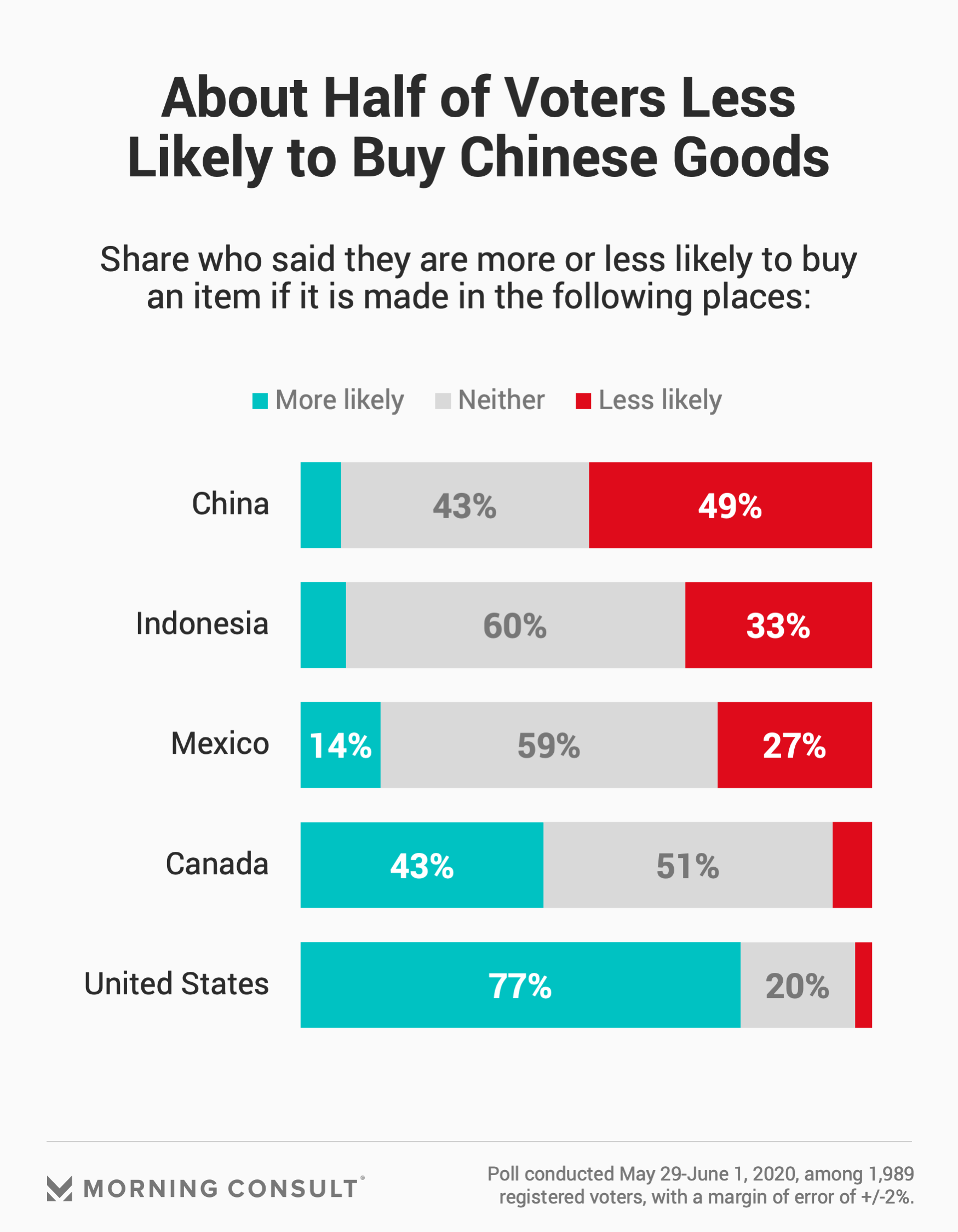As Trump Sharpens Criticism of China, Voter Sentiment on Economic Tactics Is Mostly Unchanged

Key Takeaways
Nearly 2 in 5 voters say raising tariffs on Chinese exports to the United States would hurt the U.S. economy.
And nearly 2 in 5 voters say the imposition of such tariffs on Chinese goods would help the U.S. economy.
About 1 in 2 voters are less likely to buy an item if it is made in China, while almost 4 in 5 are more likely to purchase a good made in the U.S.
At the end of last week, President Donald Trump again ramped up tensions with China, calling COVID-19 the “Wuhan virus” and announcing that the United States would withdraw from the World Health Organization and begin winding down its special economic relationship with Hong Kong.
The decoupling from Hong Kong was a significant step in the United States’ dealings with the world’s second-largest economy, but it’s a move that’s been almost entirely overshadowed by the protests over police violence against black Americans following the death of George Floyd in Minneapolis police custody. The Trump campaign, however, is still hinging its election message on the economy, and the trade war with China is a big part of that.
But even as Washington sharpens its focus on China -- the Senate Banking Committee is holding a hearing Thursday on U.S. policy tools related to Hong Kong -- voters largely remain split on how the trade war could impact the U.S. economy.

In a new Morning Consult survey, 39 percent of registered voters said that raising tariffs on Chinese goods would help the U.S. economy, while 38 percent said it would hurt the U.S. economy and 23 percent said they did not know or had no opinion.
The poll surveyed 1,989 registered voters from May 29-June 1 and has a margin of error of 2 percentage points.
Morning Consult has tracked views on Chinese tariffs and the U.S. economy over the past two years, and the results are reliably within the upper-30 percent and lower-40 percent range.
In May of last year, for example, 36 percent of voters said tariffs on Chinese goods would help the U.S. economy, and 44 percent said it would hurt. In May 2018, 37 percent said it would help and 38 percent said it would hurt.

Still, some part of the “Made in America” narrative behind the Trump trade war that prioritizes American manufacturing jobs in the Rust Belt over open trade with China still resonates with voters.
Just under half of voters (49 percent) in the May-June 2020 poll said they are less likely to buy a product if it’s made in China; Indonesia is next-highest on the list of countries that the United States imports goods from at 33 percent. Seventy-seven percent said they are more likely to buy a product if it is made in the United States.
Recent polling, however, could indicate that Trump’s approach in dealing with China might not give him much leverage over his opponent come the general election.
A Morning Consult/Politico survey found that 41 percent of voters said they trust former Vice President and presumptive Democratic presidential nominee Joe Biden more on handling relations with China, compared to 39 percent who said the same about Trump. That poll was conducted May 29-June 1 among 1,981 registered voters with a 2-point margin of error.
Claire Williams previously worked at Morning Consult as a reporter covering finances.
Related content

As Yoon Visits White House, Public Opinion Headwinds Are Swirling at Home

The Salience of Abortion Rights, Which Helped Democrats Mightily in 2022, Has Started to Fade
